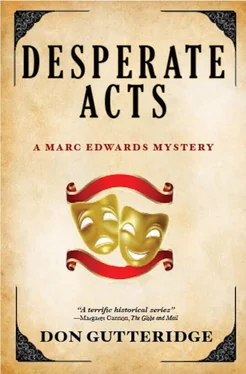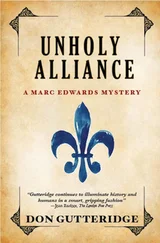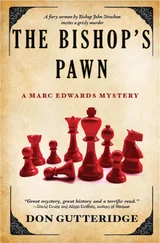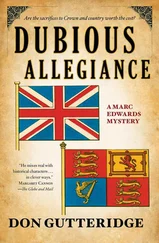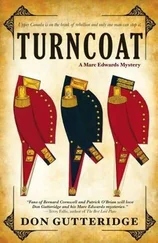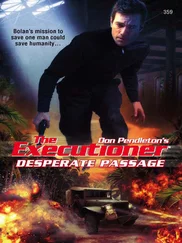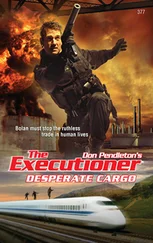Don Gutteridge - Desperate Acts
Здесь есть возможность читать онлайн «Don Gutteridge - Desperate Acts» весь текст электронной книги совершенно бесплатно (целиком полную версию без сокращений). В некоторых случаях можно слушать аудио, скачать через торрент в формате fb2 и присутствует краткое содержание. Год выпуска: 0101, Издательство: Bev Editions, Жанр: Исторический детектив, на английском языке. Описание произведения, (предисловие) а так же отзывы посетителей доступны на портале библиотеки ЛибКат.
- Название:Desperate Acts
- Автор:
- Издательство:Bev Editions
- Жанр:
- Год:0101
- ISBN:нет данных
- Рейтинг книги:4 / 5. Голосов: 1
-
Избранное:Добавить в избранное
- Отзывы:
-
Ваша оценка:
- 80
- 1
- 2
- 3
- 4
- 5
Desperate Acts: краткое содержание, описание и аннотация
Предлагаем к чтению аннотацию, описание, краткое содержание или предисловие (зависит от того, что написал сам автор книги «Desperate Acts»). Если вы не нашли необходимую информацию о книге — напишите в комментариях, мы постараемся отыскать её.
Desperate Acts — читать онлайн бесплатно полную книгу (весь текст) целиком
Ниже представлен текст книги, разбитый по страницам. Система сохранения места последней прочитанной страницы, позволяет с удобством читать онлайн бесплатно книгу «Desperate Acts», без необходимости каждый раз заново искать на чём Вы остановились. Поставьте закладку, и сможете в любой момент перейти на страницу, на которой закончили чтение.
Интервал:
Закладка:
Marc sat down. The faces of the jurorsremained impassive. He straightened his wig, then glanced up. Bethbeamed him a smile.
***
As expected, the coroner, Dr. Angus Withers, was thefirst to testify. With admirable efficiency, Kingsley Thornton ledhim his through his evidence. He focussed on the blow to the cheek,which, Withers said, had cracked the bone and certainly would havebeen enough to stun the victim or render him unconscious.
“The two savage blows to the rear ofthe skull, then, were delivered after the injury to thecheekbone?”
Marc felt like objecting to the word “savage”but saw little use in doing so. However, he did notice JusticePowell frown at the remark – surely a sign that Thornton’stheatrics would get short shrift here.
“Definitely,” Withers said. “The first onealone, administered with a blunt instrument, would have killed himinstantly – the skull was crushed – and was delivered while thevictim was nearly face-down, as I found him when I arrived on thescene. After two deadly strokes such as these, a mere blow to thecheek – made by a fist after the fact – would have been redundant.Moreover, it would have meant the assailant having to turn the bodyface-up in order to deliver it.”
“Hence, patently absurd.”
Marc leaned forward, but the judge said, “Itake it, Mr. Thornton, that that was a question, not acomment?”
“It was intended as such, Milord.”
Thornton then moved to confirm that the“savage” death-blows had in fact been administered by awalking-stick with a wolf’s-head carved on its knob, saidinstrument now being offered into evidence.
“This is definitely the murder-weapon,”Withers said solemnly as the jurors craned forward. “It was foundnearby, covered with fresh blood, bone fragments and brainmatter.”
The time of death was not much in question,Withers continued, because when he arrived in the alley the bodywas still warm. Finally, Withers told the court that the victim hadbeen identified at the scene by a Mr. Nestor Peck as Albert Duggan,his cousin from Montreal.
Thornton turned to the judge and said with arueful smile, “Mr. Peck is not available to testify to that fact,Milord, because the police tell me he has fled the city.”
“But no-one has claimed the victim to beother than Albert Duggan?” the judge asked, looking at Thornton andthen over at Marc.
“No, sir,” Thornton said, bowed, and sat down- well satisfied.
“Do you have any questions for this witness,Mr. Edwards?”
Marc might have found one or two things toquibble over in Withers’ testimony. For example, it was more likelythat Duggan had fallen on his back after the punch to the face,making it probable that he had regained his senses some time laterand was then struck from behind – a fact more consistent withBrodie’s written account than that of the eye-witnesses to come.But, then, the wily Thornton would rebut simply by suggesting thatDuggan could have fallen backwards and, stunned, have rolled overand away from his assailant, who then struck him with thewalking-stick. In watching Dick Dougherty here last January, Marchad learned the wisdom of not pulling your trigger too soon, ofbiding your time so that when you did pounce, the effect was notonly dramatic, but substantive – and irreversible.
“No questions, Milord.”
***
Constable Horatio Cobb was extremely uncomfortableas he stood in the witness-box in his Sunday suit with his hairslicked down as much as it would allow and his fingers gripping therail as if he might otherwise topple over it. Thornton was quick tosense not only Cobb’s anxiety, but the hostility that accompaniedit.
“You are a veteran police constable, are younot, Mr. Cobb?” Thornton began with a smile as wide as a butcher’sgreeting a favoured customer.
“Almost five years.”
“And you have apprehended any number ofmiscreants over those years?”
“Yup.”
“Are you heading somewhere relevant withthis?” the judge said, raising one black eyebrow beneath hisperiwig.
“I am, Milord.” Thornton turned towards Cobband said sweetly, “Have you ever had a criminal rush up to you onthe street, confess to a serious crime he’s committed not tenminutes before, and beg to be taken to the police quarters so hecan put it all down in an affidavit before he forgets it?”
Marc was on his feet.
“I agree, Mr. Edwards,” the judge said, thenturned to Thornton to admonish him. “You know better, Mr. Thornton.You’ll have ample room to establish how the document was obtainedand what Mr. Cobb’s role was in the business. So, please movequickly in that direction.”
But as Justice Powell and Marc knew, thedamage had been done. The jury would be invited to see Brodie’sstatement as unprecedented and, therefore, a self-serving attemptto throw the blame for the crime elsewhere.
Thornton thanked the judge for hissuggestion, and proceeded to lead Cobb painfully through thesequence of events on the evening in question. Cobb was compelledto admit, under a relentless but always polite prodding, that hehad met an excited Brodie Langford on Wellington Street, not ablock and a half from the site of the crime, and heard him“confess” to a violent encounter with a blackmailer, going so faras to show the policeman his battered knuckles.
“Can you honestly say, Constable Cobb, thatMr. Langford was seeking you out?”
Cobb hesitated. “He said he was glad to seeme.”
“But that is not the same, is it, as seekingyou out? Do you know for a fact that he was heading for the policequarters to admit striking the victim on the cheek with hisfist?”
Again Cobb hesitated, glanced over at Marc,then up at the prisoner in the dock. “Well, sir, he was headin’east in the general direction of the City Hall.”
“Was he not in fact wandering about in adazed or confused state, as a guilty man might do after committingsome heinous and irrevocable act?”
“Mr. Thornton!”
“I apologize, Milord. But I am merelyattempting to get this somewhat reluctant witness to describe thedefendant as he first encountered him that night. As the accused’sintentions at this point are critical to the jury’s determining thevalidity and probative value of his ‘confession,’ they will need tohear what an experienced policeman saw and inferred.”
Once again Kingsley Thornton had plantedseeds of doubt about Brodie’s purpose in dictating and signing anaffidavit in which he had admitted only to throwing a punch.
“Well, Mr. Cobb,” the judge said, “was thedefendant dazed and confused?”
Cobb grimaced and said stubbornly, “He was abit excited and a mite upset. That’s all I know.”
But it was enough – alas.
The remainder of Cobb’s testimony wasstraightforward and uncontentious. The jury heard about Cobb’sdiscovery of the body and the bloody walking-stick, about his entryinto the tavern to find someone who might know the victim’sidentity, about his instructing others to fetch the coroner andmore constables to the scene. Cobb went on to describe the surpriseof Nestor Peck at seeing his cousin dead in the alley, andmentioned that Gillian Budge had recognized Duggan as an occasionalcustomer, but did not know his name. Thornton was at pains to haveCobb describe the alley as he found it, in great detail – includingreferences to the moonlight, the broad window in the tavern wallabove, the sunken cellar-window, and the shadowy escape route northto the east-west service lane. He was carefully laying thegroundwork for the eye-witness accounts to come.
In fact, so detailed was this part of Cobb’stestimony that the jury was in danger of sagging under its weight.Sensing this, Thornton concluded his examination with awhippet-quick turn of the head from the jury to the witness, andthis abrupt query:
Читать дальшеИнтервал:
Закладка:
Похожие книги на «Desperate Acts»
Представляем Вашему вниманию похожие книги на «Desperate Acts» списком для выбора. Мы отобрали схожую по названию и смыслу литературу в надежде предоставить читателям больше вариантов отыскать новые, интересные, ещё непрочитанные произведения.
Обсуждение, отзывы о книге «Desperate Acts» и просто собственные мнения читателей. Оставьте ваши комментарии, напишите, что Вы думаете о произведении, его смысле или главных героях. Укажите что конкретно понравилось, а что нет, и почему Вы так считаете.
